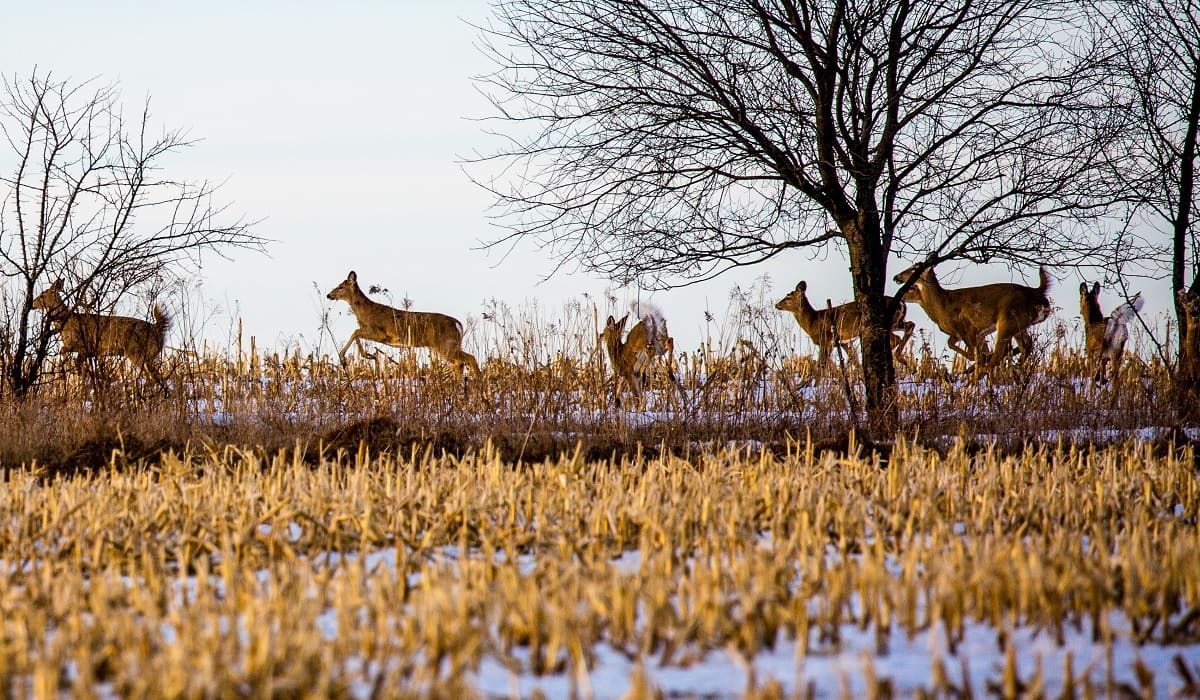Michigan DNR Confirms First Case of Incurable Deer Disease in Upper Peninsula
OutdoorHub Reporters 10.25.18

Michigan’s Lower Peninsula has been battling against CWD in deer for the past several years. And up to this point, the deadly disease hadn’t infected the Upper Peninsula. That all changed recently after the Michigan Department of Natural Resources confirmed a 4-year-old doe tested positive for chronic wasting disease. Marking the first ever case of the incurable deer disease discovered within Michigan’s Upper Peninsula.
The finding was verified by the Michigan State University’s Veterinary Diagnostic Laboratory in East Lansing and the U.S. Department of Agriculture’s National Veterinary Services Laboratory in Ames, Iowa. The deer was shot in Dickinson County on an agricultural farm roughly 4 miles from the Michigan-Wisconsin border.
Wisconsin has had a rough go with CWD in the state as well, factoring in to the DNR’s decision to have 625 deer-damage permit, roadkill and hunter-killed deer tested for the disease from Dickinson, Gogebic, Menominee and Iron counties.
“We remain committed to maintaining healthy Michigan wildlife for the residents of, and visitors to, this great state, now and into the future,” said Michigan Department of Natural Resources Director Keith Creagh. “Fortunately, over the past few years, with the help of hunters, the U.P. CWD Task Force, DNR staffers and others, we are far better prepared to respond to threats posed by chronic wasting disease in the U.P.”
Chronic wasting disease has been found in free-ranging deer in six additional counties in Michigan – Clinton, Ingham, Ionia, Jackson, Kent and Montcalm. A total of 63 deer within these counties have tested positive for the disease.
“For next hunting season and beyond, the DNR will discuss possible response actions with U.P. hunters and other stakeholders to determine the best approach to fighting CWD in the region,” said Chad Stewart, DNR deer management specialist.
Immediate action has already taken place, as the DNR has set up a 10-mile core area centered on Waucedah Township. A goal has been set to have at least 600 deer tested from the area to get a better understanding of the extent of possibly infected deer.
In addition, the DNR intends on taking the following actions:
- Providing additional drop boxes for deer heads within the area, especially in convenient, high-traffic places.
- Offering disease control permits to interested landowners who have more than 5 acres of land and are within 2 miles of the center of the surveillance area.
- Allowing baiting for deer to continue for the rest of this year. Future decisions on feeding deer will be based on the results of the surveillance efforts.
- An ongoing DNR U.P. deer migration study will be adjusted to include the affected area within its boundaries. Deer will be collared in the area to better understand the movements of deer.

